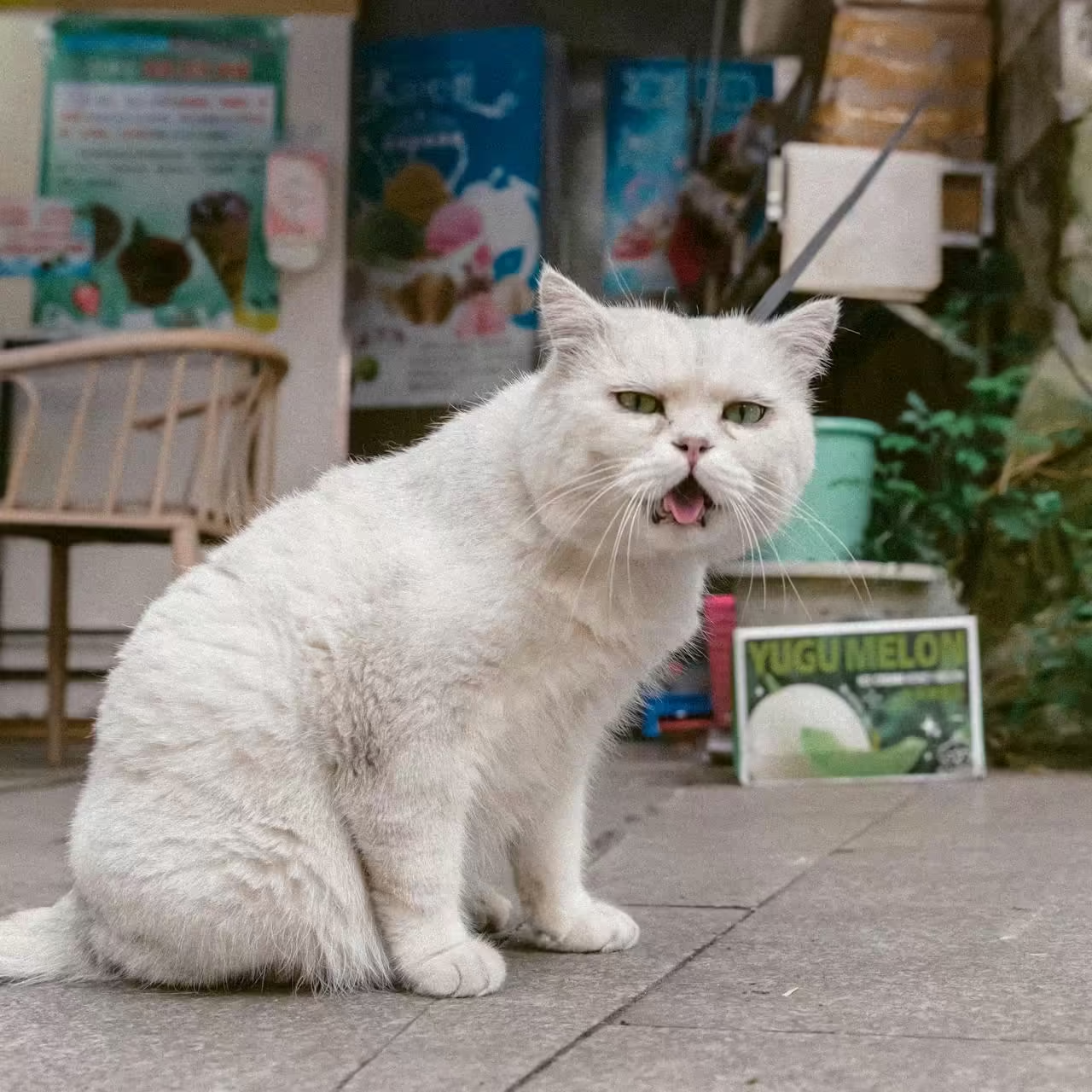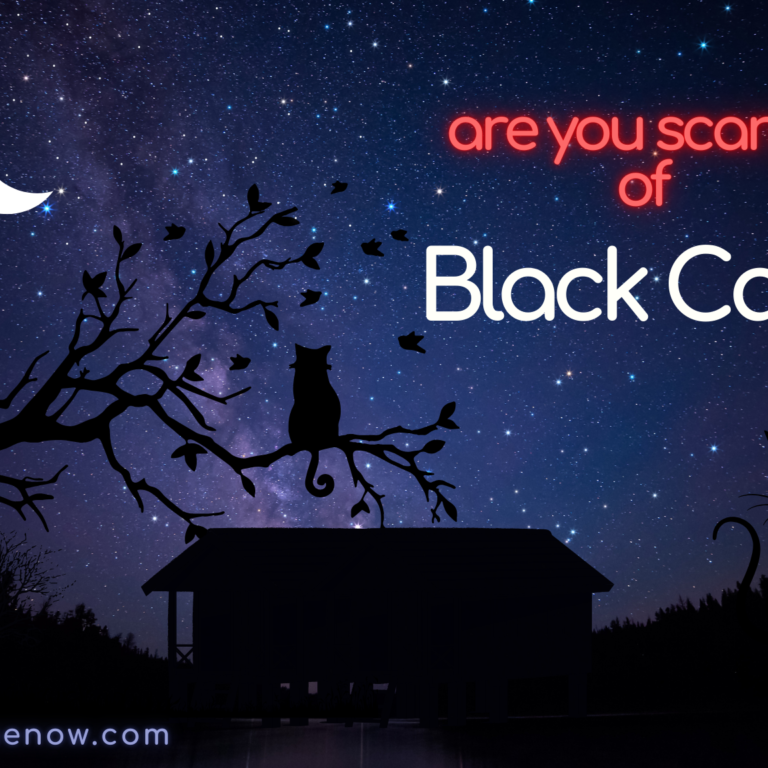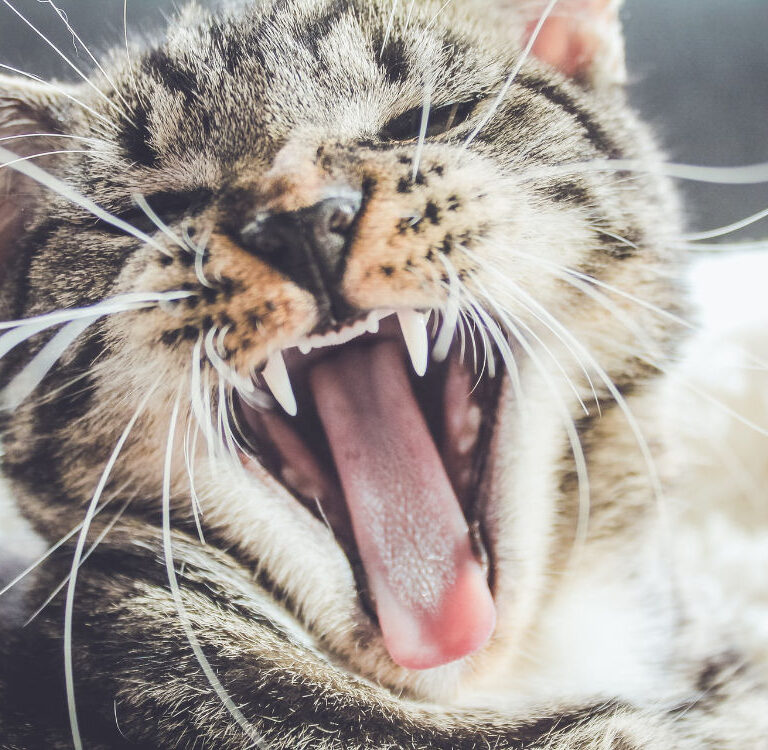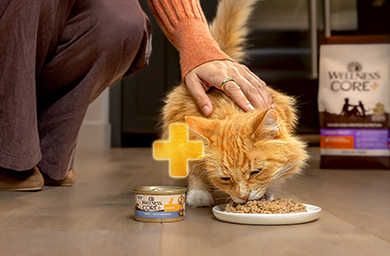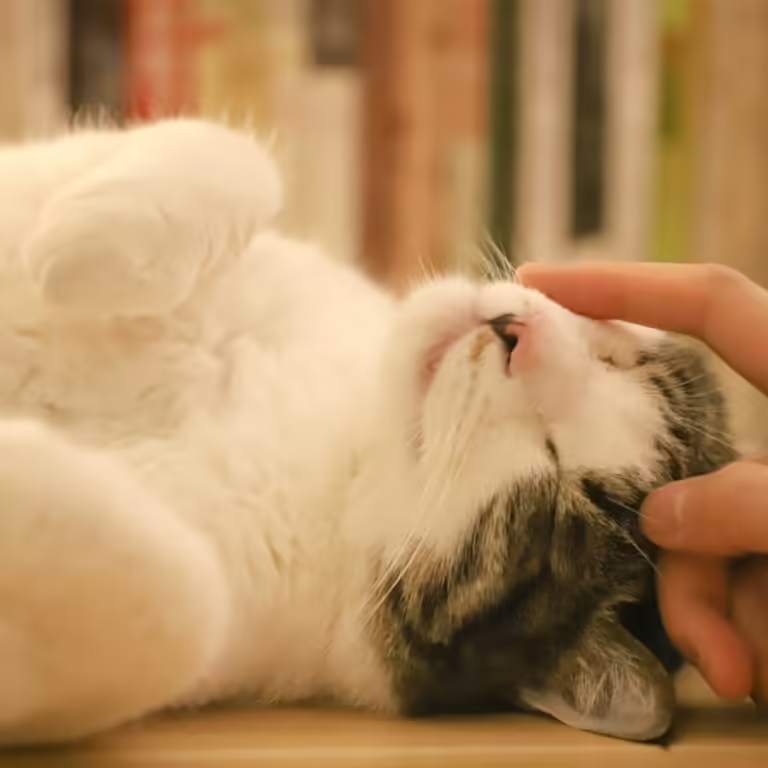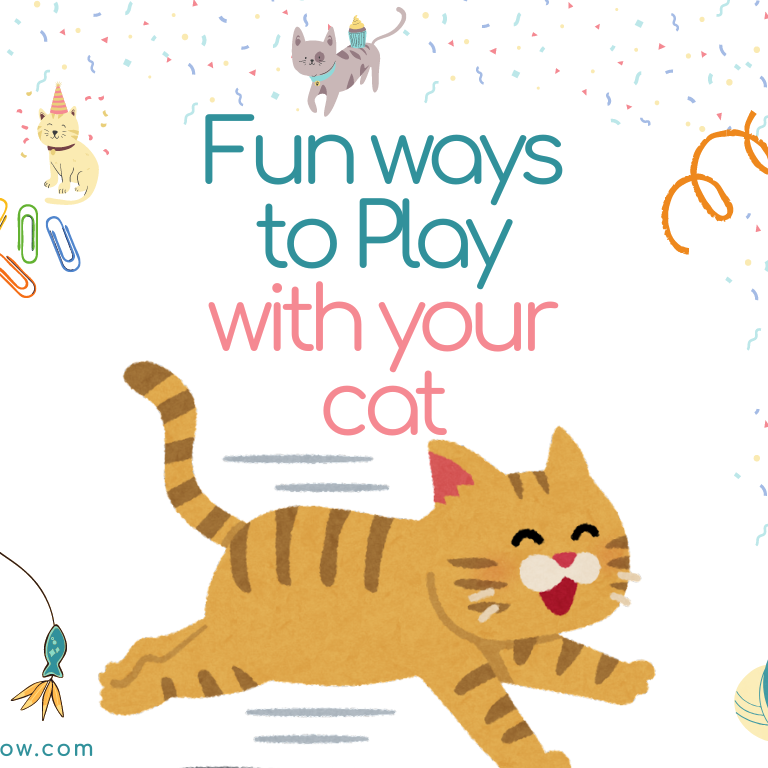Why does My Cat vomit After Eating? Causes, Signs, and Remedies
As a cat owner, it can be quite distressing to see your cat vomit after eating. You might wonder, “Why does my cat keep throwing up?” or “When should I be concerned about my cat vomiting?” These are valid concerns, and understanding the underlying causes, signs, and remedies can help you manage this issue effectively.
Vomiting is a natural reflex in cats that can occur for various reasons. It’s important to differentiate between vomiting and regurgitation, as the two are often confused. Vomiting is an active process where the stomach muscles contract to expel its contents, often accompanied by drooling or heaving. Regurgitation, on the other hand, is a passive process where undigested food is brought up from the esophagus without much effort. Recognizing the difference can help you better understand your cat’s condition.
What Causes a Cat to Vomit After Eating
If your cat throwing up food after eating, it could be due to several factors. One common reason is that they may be eating too quickly, causing their stomach to reject the food. This can happen if your cat is overly excited or anxious during mealtime. Overeating also causes a cat vomits after eating, especially if the food is not adequately chewed.
In some cases, vomiting might be a sign of an underlying health issue. Gastrointestinal problems, food allergies, or intolerances are common culprits. It’s crucial to pay attention to the frequency and nature of the vomiting, as it can provide clues to the underlying cause.
Dietary Causes of Cat Vomiting
Food Allergies and Intolerances
Just like humans, cats can have food allergies or intolerances. Certain ingredients in commercial cat food, such as grains, dairy, or specific proteins, can trigger an allergic reaction, leading to vomiting. If you suspect your cat has a food allergy, consider switching to a hypoallergenic or limited-ingredient diet.
Ingestion of Inappropriate Foods
Cats are curious creatures and might ingest non-food items like plants, string, or even chemicals. These can irritate their stomach and lead to vomiting. It’s essential to keep hazardous materials out of your cat’s reach and monitor their environment closely.
Poor Quality Food
Feeding your cat poor-quality food can also lead to vomiting. Low-quality cat food often contains fillers, artificial preservatives, and other ingredients that may upset your cat’s stomach. Opting for high-quality, natural cat food can make a significant difference in reducing vomiting episodes.
Hairballs
Hairballs are another common cause of vomiting in cats. When cats groom themselves, they ingest hair, which can accumulate in their stomach and form hairballs. If your cat frequently vomits hairballs, it may be worth considering a hairball control diet or other remedies to help manage the issue.
Medical Conditions Causing Cat Vomiting
Gastrointestinal Issues
Gastrointestinal disorders, such as inflammatory bowel disease (IBD) or pancreatitis, can cause chronic vomiting in cats. These conditions require veterinary diagnosis and treatment, so if your cat frequently vomits and shows other signs of discomfort, it’s time for a vet visit.
Feline Hyperesthesia Syndrome
Feline Hyperesthesia Syndrome (FHS) is a rare condition that can cause cats to experience heightened sensitivity, leading to behaviors like excessive grooming and, in some cases, vomiting. While FHS is not a common cause of vomiting, it is something to be aware of if your cat exhibits other symptoms of this condition.
Parasites and Infections
Internal parasites, like worms, or infections can irritate your cat’s digestive system, leading to vomiting. Regular deworming and vaccinations can help prevent these issues.
Chronic Conditions
Chronic diseases such as liver disease, kidney disease, or diabetes can also lead to vomiting. These conditions often require long-term management and regular veterinary care.
Inflammatory Bowel Disease (IBD)
IBD is a chronic condition that affects the digestive tract, causing inflammation and irritation. Cats with IBD may experience frequent vomiting, diarrhea, and weight loss. If you suspect your cat has IBD, a visit to the vet is essential.
Gastroenteritis
Gastroenteritis, an inflammation of the stomach and intestines, can also cause vomiting. This condition can be triggered by various factors, including infections, toxins, or dietary indiscretion. Treatment typically involves supportive care and addressing the underlying cause.
Ingesting Foreign Objects
Cats are curious creatures, and they sometimes ingest foreign objects that can cause blockages in their digestive system, leading to vomiting. If you suspect your cat has swallowed something it shouldn’t have, seek veterinary care immediately.
Behavioral Causes of Vomiting
Eating Habits
If your cat tends to gulp down their food quickly, it can lead to vomiting. Slow feeding techniques, such as using a puzzle feeder or spreading food out on a flat surface, can help reduce the speed at which your cat eats, thus preventing vomiting.
Stress and Anxiety
Cats are sensitive to changes in their environment, and stress or anxiety can manifest as vomiting. Whether it’s a new pet in the house, a change in routine, or loud noises, these factors can upset your cat’s stomach.
Signs to Watch For
Frequency of Vomiting
If your cat frequently vomits, especially after meals, it’s essential to monitor the frequency and patterns of vomiting. Frequent vomiting in older cats, in particular, can be a sign of underlying health issues that need to be addressed.
Type of Vomit
The type of vomit can also provide clues about the cause. For example, if your cat vomits clear liquid, it might be a sign of an empty stomach or ingestion of too much water. Cats that vomit daily should be evaluated by a vet to rule out serious health concerns.
Associated Symptoms
In addition to vomiting, watch for other symptoms like lethargy, loss of appetite, and weight loss. These signs may indicate a more severe underlying condition that requires prompt veterinary attention.
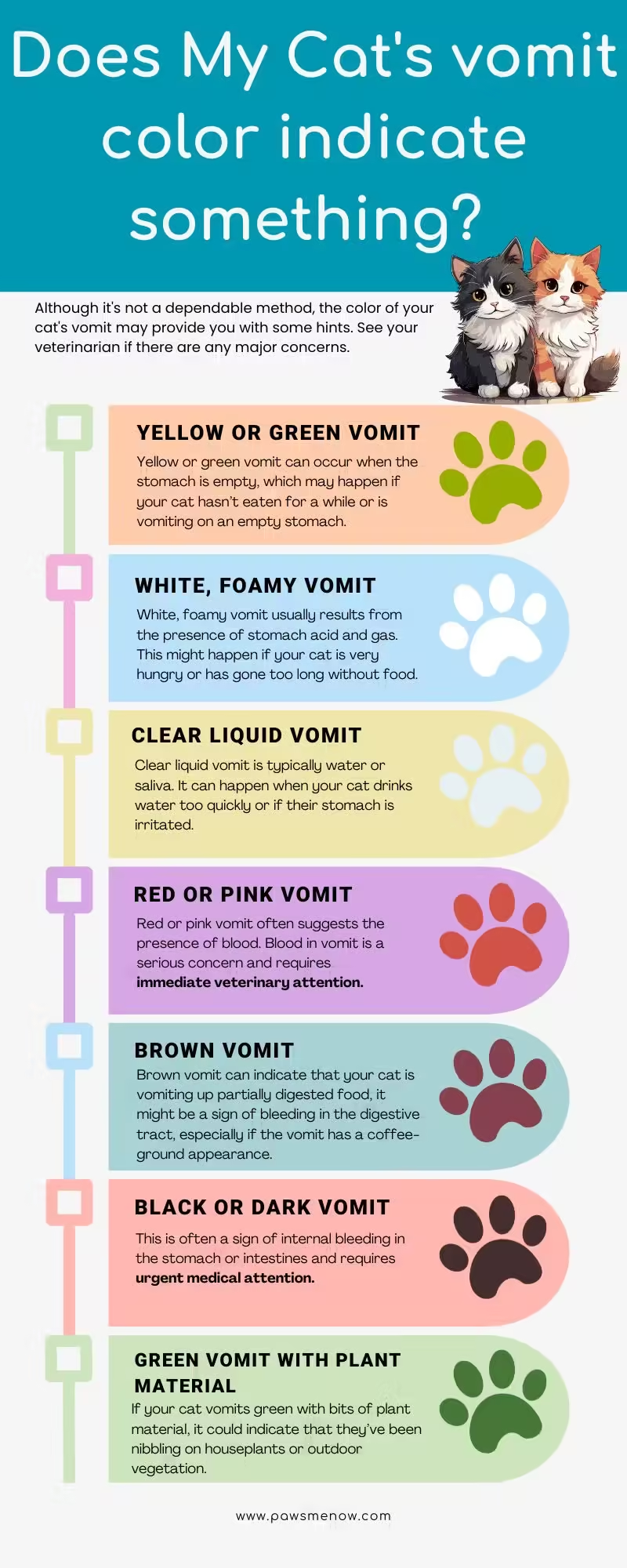
When Should I Be Concerned About My Cat Vomiting?
While occasional vomiting is not uncommon in cats, persistent vomiting is a cause for concern. If your cat vomits more than once a week or exhibits other concerning symptoms, it’s time to consult your veterinarian. Be on the lookout for red flags such as lethargy, diarrhea, loss of appetite, or blood in the vomit. These symptoms, in conjunction with frequent vomiting, require immediate veterinary attention.
Vomiting Frequency
Frequent vomiting, especially if it’s happening daily, is a red flag. Cats that vomit frequently may have an underlying condition that needs to be diagnosed and treated by a veterinarian.
Age Factor
Older cats are more prone to certain health issues, including chronic kidney disease and hyperthyroidism, both of which can cause vomiting. Frequent vomiting in older cats should always be investigated by a vet.
Underlying Health Conditions
Chronic kidney disease and hyperthyroidism are common in older cats and can cause frequent vomiting. If your cat has been diagnosed with one of these conditions, working with your vet to manage the disease can help reduce vomiting episodes.
Remedies and Treatments for Cat Vomiting
Adjusting Feeding Habits
One of the simplest ways to reduce vomiting in cats is by adjusting their feeding habits. Slow feeder bowls can help prevent your cat from eating too quickly, and offering smaller, more frequent meals can reduce the risk of overeating.
Changing Diet
Switching to a different diet can also help manage vomiting in cats. Look for the best cat food for frequent vomiting—these are usually hypoallergenic or formulated specifically for sensitive stomachs. If you suspect food allergies, try a novel protein diet or a diet free from common allergens like grains or specific proteins.
Hydration
Ensuring your cat stays hydrated is crucial, especially if vomiting is frequent. Cats that vomit clear liquid might be ingesting too much water at once. To combat this, you can offer smaller amounts of water more frequently and consider wet food, which has a higher moisture content, to keep your cat hydrated.
Hairball Remedies
If hairballs are the culprit, consider specialized cat food designed to reduce hairball formation. These foods often contain more fiber, which helps move hair through the digestive tract. Additionally, hairball prevention gels can lubricate the intestines, making it easier for your cat to pass hair naturally.
Veterinary Care
If home remedies and diet changes don’t resolve the vomiting, it’s essential to seek veterinary care. Your vet may perform diagnostic tests, such as blood work, X-rays, or ultrasounds, to determine the underlying cause. Depending on the diagnosis, treatment may include medication, dietary changes, or even surgery in severe cases.
Preventive Measures
Regular Vet Check-ups
Routine veterinary check-ups are crucial in preventing frequent vomiting. Regular exams allow your vet to catch potential issues early and recommend dietary or lifestyle changes before they become significant problems.
Proper Diet and Nutrition
Feeding your cat a high-quality, balanced diet is one of the best ways to prevent vomiting. Ensure that the food is appropriate for your cat’s age, health status, and any specific dietary needs.
Environmental Enrichment
Keeping your cat mentally and physically stimulated can help reduce stress, which is a known trigger for vomiting in some cats. Provide plenty of toys, scratching posts, and opportunities for play to keep your cat happy and healthy.
Grooming Routine
Regular grooming can help reduce the amount of hair your cat ingests, minimizing the risk of hairballs. Brushing your cat daily, especially if they have long fur, can significantly reduce the likelihood of hairballs.
Parasite Control
Ensuring your cat is free from parasites like worms is another crucial step in preventing vomiting. Regular deworming and flea control can keep these pesky parasites at bay and reduce the risk of gastrointestinal issues.
Behavioral Modifications
Reducing stress and creating a calm feeding environment can also help prevent vomiting. Consider setting up a quiet feeding area away from other pets and disturbances.
Frequently Asked Questions
Conclusion
Cat vomiting after eating can be a worrying experience for any pet owner, but understanding the causes and knowing how to address them can help you keep your feline friend healthy and happy. Whether it’s due to overeating, hairballs, or an underlying health condition, there are steps you can take to minimize cat vomiting and ensure your cat’s well-being. Always keep a close eye on your cat’s behavior and consult a vet if vomiting becomes frequent or severe. By providing proper care, diet, and attention, you can help your cat live a comfortable and healthy life.

